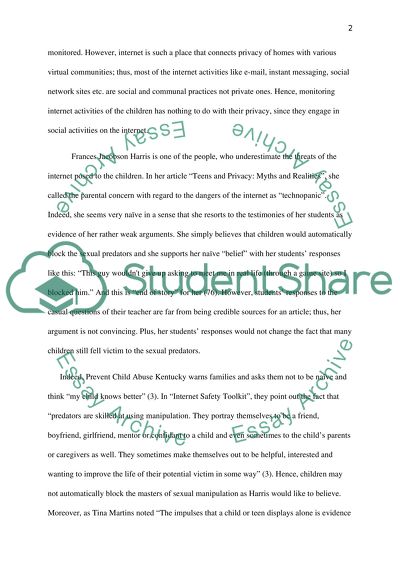Cite this document
(“Children and the Internet Essay Example | Topics and Well Written Essays - 2250 words”, n.d.)
Retrieved from https://studentshare.org/english/1429689-children-and-the-internet
Retrieved from https://studentshare.org/english/1429689-children-and-the-internet
(Children and the Internet Essay Example | Topics and Well Written Essays - 2250 Words)
https://studentshare.org/english/1429689-children-and-the-internet.
https://studentshare.org/english/1429689-children-and-the-internet.
“Children and the Internet Essay Example | Topics and Well Written Essays - 2250 Words”, n.d. https://studentshare.org/english/1429689-children-and-the-internet.


